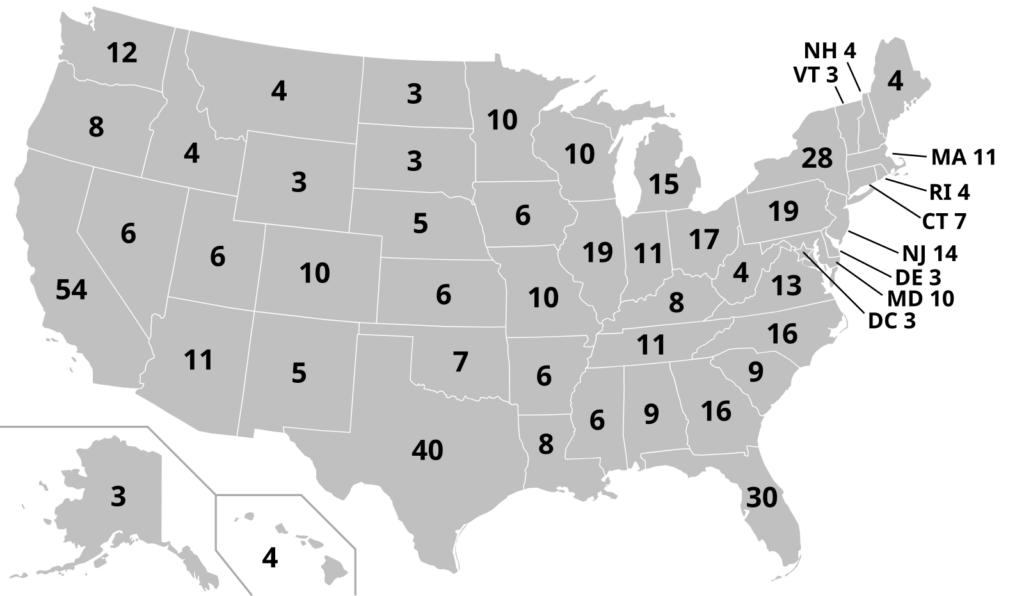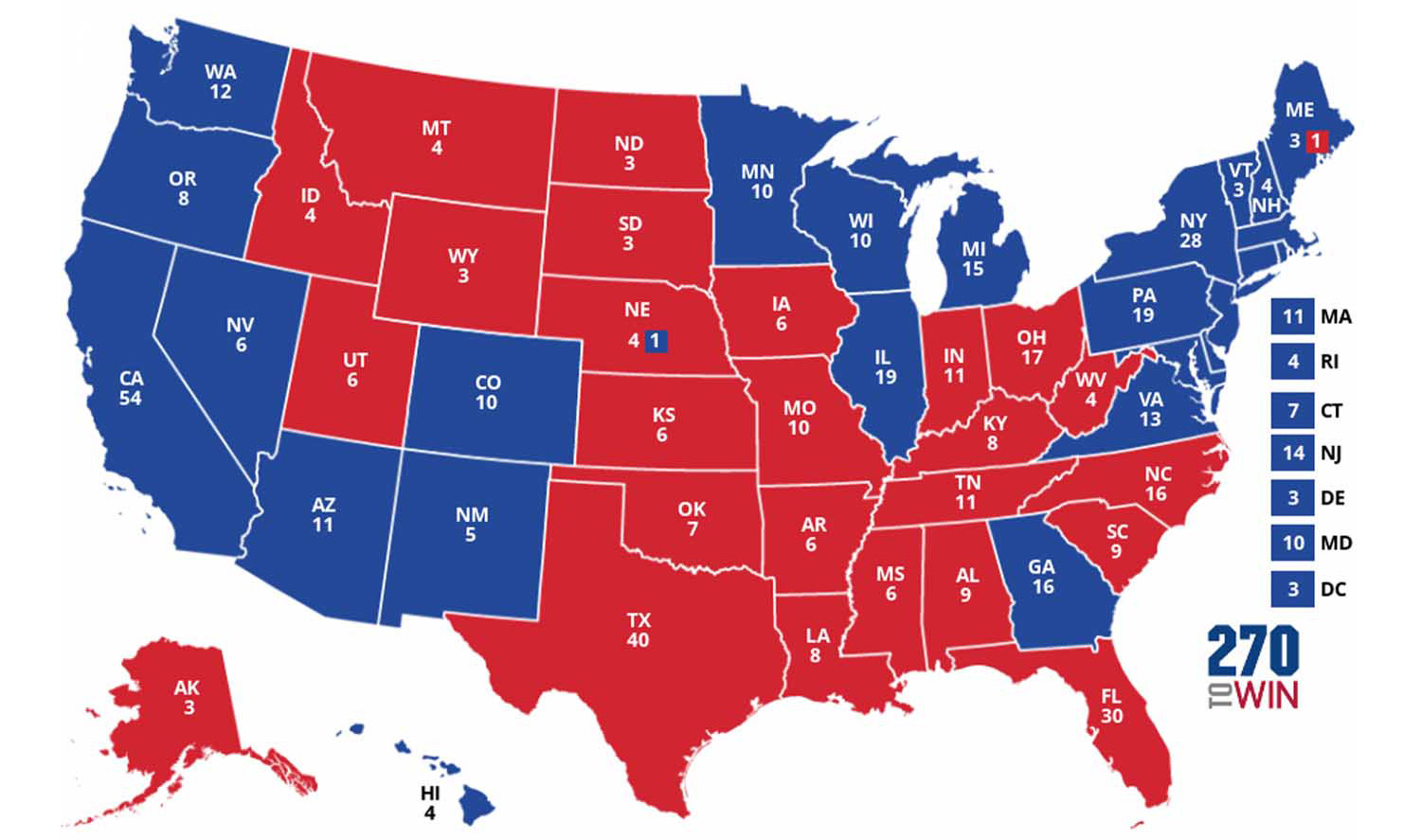What is the Electoral College?
Instead of voting directly for a presidential candidate, U.S. citizens vote for electors who then vote for a president––kinda like picking a team captain who makes the final call.
This system is called the Electoral College.
Who is in the Electoral College?
The Electoral College comprises 538 electors, divided between the states and D.C.

Each state receives the same number of electors as its Congressional delegation (Representatives in the House + Senators). Most states follow a “winner-takes-all” system, where the candidate who wins the popular vote in that state bags all the state’s electors. However, Maine and Nebraska use a proportional system: they award two electoral votes to the statewide winner and cast the remaining votes based on the winner within each congressional district.
Political parties usually choose electors in each state before the election—think of them as each party’s loyalists ready to cast votes on their behalf. They are often state party leaders or people with a personal connection to the candidate.
The presidential election winner is whichever candidate receives 270 or more electoral college votes.
Why was the Electoral College created?
The Electoral College was a compromise between founding fathers who disagreed on whether the president should be elected by Congress or a popular vote.
Some feared that a popular vote would result in large states always electing one of their own, while others feared allowing Congress to choose the president was an invitation for corruption between the executive and legislative branches.
And so… the Electoral College was born.
What do critics of the Electoral College say?
A main criticism is that the Electoral College undermines democratic principles by making some people’s votes more impactful than others. A Democrat in Wyoming can feel like her vote “doesn’t count” since Wyoming has supported the Republican candidate in every election for over 50 years. Meanwhile, a few thousand votes may decide who wins all of Pennsylvania’s electoral votes and determine the election outcome.
Roughly 2/3s of Americans (63%) support moving away from the Electoral College in favor of a popular vote, where each citizen’s vote is weighed equally.
What do supporters of the Electoral College say?
Supporters argue the Electoral College protects minority interests by requiring candidates to gain the support of a more diverse group of voters. They reason that without the Electoral College, presidents could be elected by dominating one populous region and feel no political pressure to represent the needs of other regions or by dominating large cities instead of more rural populations.
Additionally, they argue the Electoral College preserves federalism (the division of power between a central authority and individual states) by giving states an important role in the selection of the president.
FAQs
Can electors vote for whoever they want?
Electors from 29 states are bound by law to vote according to their state’s popular vote. There have been 167 electors throughout history who have not cast their votes for the candidates they were designated to represent, but these so-called rogue electors have never changed the outcome of an election.
Can the Electoral College be changed?
The Electoral College system is enshrined in the U.S. Constitution and would require an amendment to change.
A proposed alternative to a Constitutional amendment is the National Popular Vote Interstate Compact—an agreement among states to award electoral votes to the candidate who wins the national popular vote.
When do the Electors vote?
U.S. citizens vote for their preferred candidate by Election Day (November 5, 2024). That vote determines electors, who then cast their votes mid-December. On January 6, the Vice President presides over a joint session of Congress to count the electoral votes. Each state’s results are certified, and any objections are addressed.
Media outlets will typically announce who is projected to win on election night or shortly after.
Does the Electoral College vote ever differ from the popular vote?
Yes, this has occurred five times throughout history and twice since 2000.
George W. Bush defeated Al Gore despite losing the popular vote in 2000, and Donald Trump defeated Hillary Clinton despite losing the popular vote in 2016.
This is part of our Election Collection articles series, created to help Christians grow in understanding and compassion on key issues surrounding the 2024 presidential election.
Last Updated: October 29, 2024


